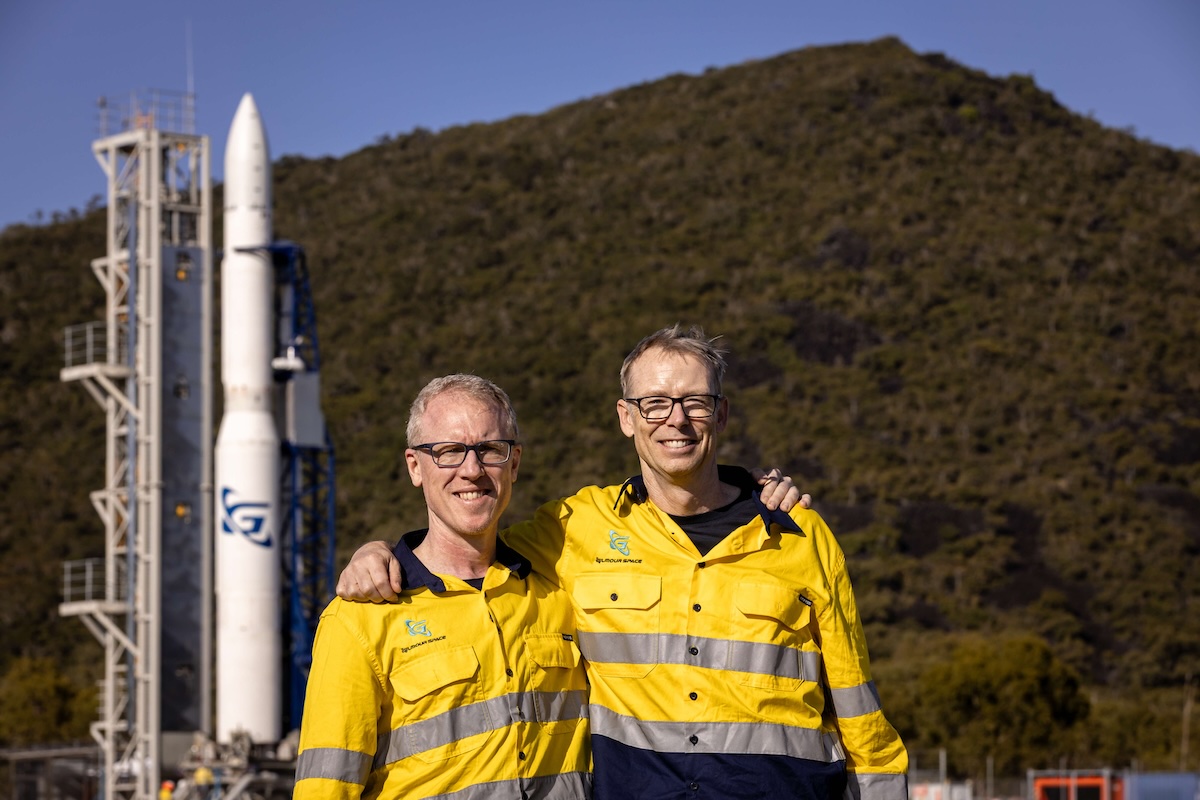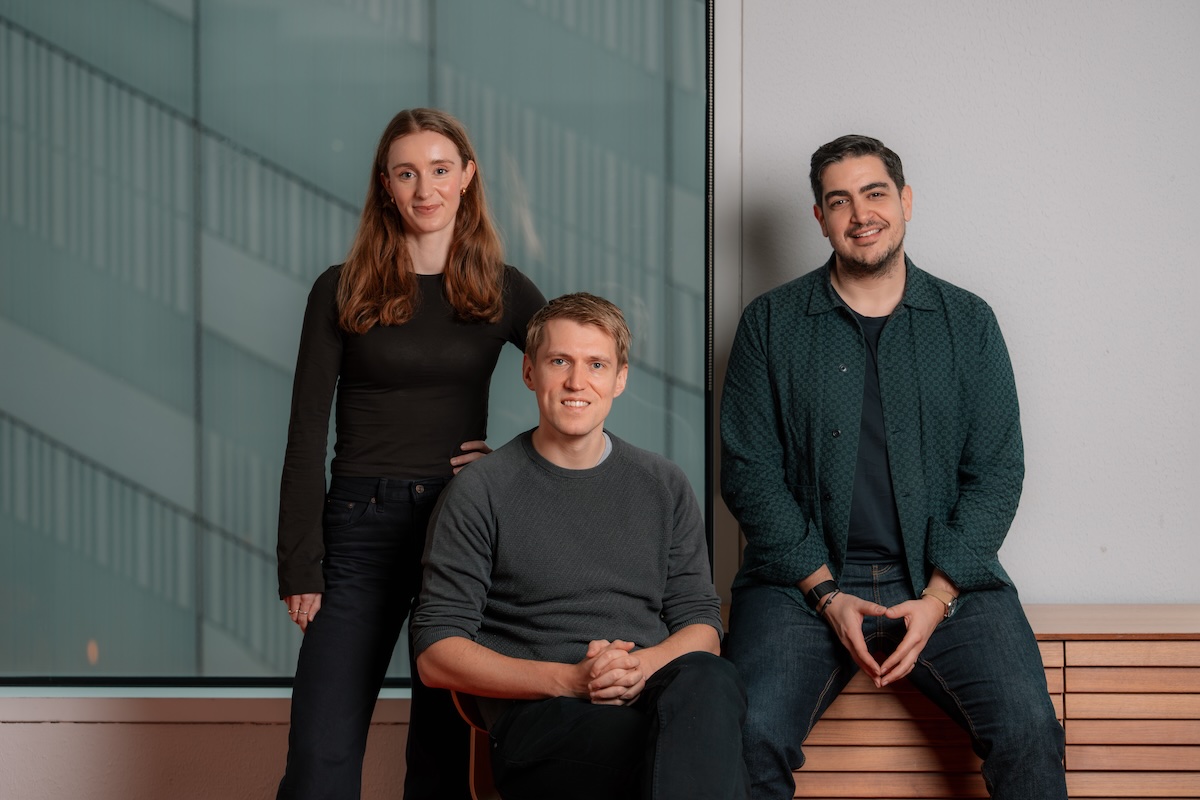.avif)
The Next Generation of Biohackers
'The rearview mirror is always clearer than the windshield' - Warren Buffett.
Biology today stands at the same precipice that computing did in the 70s and 80s.
The world could look completely different in the next 20 years if biotechnology and synthetic biology continue to advance at their current rate. Rapid advancements in DNA sequencing and the omics revolution are driving forward the field of precision medicine.
Australians have a unique opportunity to be at the forefront of this revolution.
Why?
Australia pulls above its weight in scientific research. This is evident in both the number and quality of publications (see below) — medical and health research makes up the largest portion.


We have the technical talent, but we are building companies with it at a snail's pace. While a vibrant tech scene has flourished in Australia over the past decade, this has not yet cracked biology.
We think now is the time to start.
Science-fiction technologies are closer than we realise
Engineered babies became a reality in 2019. Edited before birth to be HIV-resistant, the He Jiankui twins marked a turning point in history; the ability to engineer biology was no longer the stuff of science fiction.
What made this possible?
A revolution in genomics paired with cutting-edge biological tools.
Today, we have faster and cheaper access to the data that underlies life. In fact, the cost of genome sequencing has dropped quicker than Moore’s Law since 2008 (see below).

But before we get to designer babies, these advancements in sequencing and the omics (genomics, epigenomics, transcriptomics, proteomics, and metabolomics) have unlocked the door to precision medicine.
Traditionally, medicine has followed a ‘one size fits all’ model. Precision — or personalised — medicine is a targeted approach made possible by the huge amount of data we now have from biology. It tailors disease prevention and treatment to specific disease subtypes or personal biology.
And while the progress is exciting, for precision medicine to be viable on a large scale, many dependent technologies still need to be optimised.
We see opportunities across the whole process.

Data has unlocked the door, but the enabling technologies will open it, creating a positive feedback loop. Here are the areas we’re most excited to see develop:
Precise and accurate gene editing:
The CRISPR Cas system — first discovered as bacteria's defence mechanism — has changed the course of biology. Gene editing just got a whole lot cheaper and more precise. US based Beam Therapeutics, Crispr Therapeutics, and Mammoth Biosciences are pioneering both medicines and diagnostics in this space.
CRISPR works by hijacking the cell’s DNA repair mechanisms. When Cas proteins make a cut, they trick the cell into fixing its DNA, all while making a sneaky edit. Taking this further, data collected across the omics informs how we can hijack other biological systems — a focus of next-generation therapeutics.
DNA synthesis:
DNA is the densest storage mechanism known to man. At a theoretical density of 2 bits per nucleotide, we could store all the world's data in a kg of DNA. Cost, production speed, and quick information retrieval are the major bottlenecks. For most practical purposes, we need close to a million-fold improvement in the speed and scale of production.
A million-fold improvement sounds enormous, but the cost to sequence DNA has fallen more than 2 million fold since 2003. While not as impressive, the price to synthesise DNA has decreased significantly over the last ten years, from ~$10 to ~$0.1 per base pair. Twist Bioscience and Ginko Bioworks are working on this problem.
Computational biology and bioinformatics:
We are drowning in biological data. A team effort at the intersection of computer science, biology, and maths will make this data meaningful. Alpha-Fold, Deepmind's protein folding prediction model, is a fascinating example. When they won the annual Critical Assessment of Protein Structure Prediction (CASP) competition, scientists thought the feat was 20 years away.
Data is informing better computational models of biological systems, which are in turn generating advances in the field of computational biology and chemistry. Companies like Recursion Pharmaceuticals, 1910 Genetics, and Schrödinger are taking different approaches to improve drug discovery and development. These big data, AI, and simulation platforms are being used for drug target identification, molecule design, disease modelling, protein-protein interactions, and much more.
Physical models:
Because humans are not mice, many therapies that work in mouse models fail in human trials. Obvious — yet we still don’t have a great solution to this. Gene editing is not only useful for therapeutics. It also represents an opportunity to engineer better animal models for pre-clinical trials.
If you’re curious, this paper out of Australia’s Walter and Eliza Hall institute demonstrates how we can use CRISPR activation to build more specific mouse models. Another team led by an Australian in New York is working on this problem using base editing.
Better ways to culture cells in 3D forms will also improve pre-clinical research, increasing the rate of clinical trial success. Inventia Life Science is Blackbird portfolio company operating here with its 3D cell culture platform.
Delivery mechanisms & nanomedicine:
Finally, as medicines become more specific, how do we target the problem while keeping healthy cells and processes intact? How do we hit the 80% of the drug targets inside the cell — currently out of reach of most therapeutic modalities?
Moderna’s covid vaccine was an exciting step forward in drug delivery, successfully encapsulating mRNA in lipid nanoparticles.
Still, there are many problems to be solved. Examples include delivering drugs to specific locations in high enough quantities, avoiding renal clearance, and effectively crossing the blood-brain barrier.
Where to next?
We are excited about the untapped opportunities in Australian medical research. We believe there are many people out there we haven’t met yet working on world-changing ideas. It could fall into the categories above, or you could teach us about something we’ve missed.
Like the best companies in the world, we believe the next generation of companies engineering biology will be founder-led — so if this is something you’re thinking about or working on, we’d love to chat. The earlier, the sooner, the better!
And I would love to hear what you thought of this! You can reach me on Linkedin or Twitter.



.webp)




.avif)
.avif)
